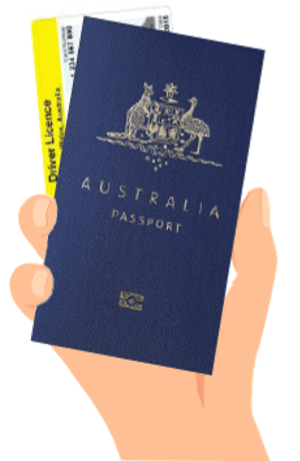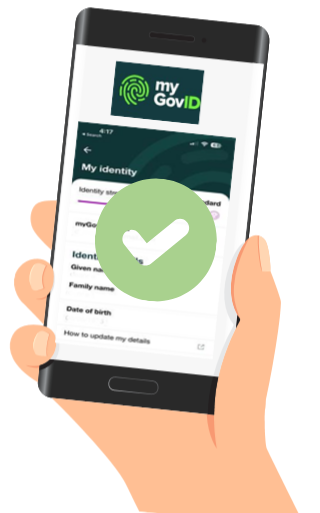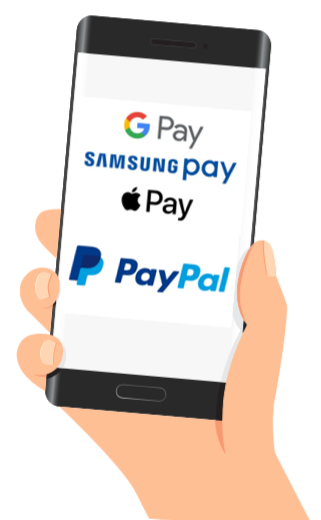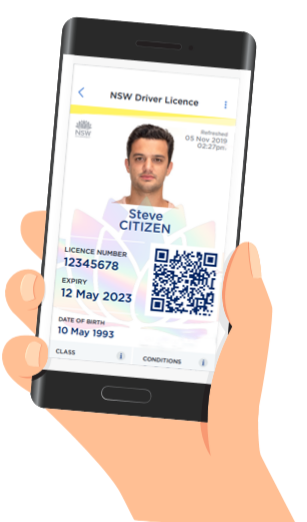What's the difference?
Using your smartphone to pay at the counter of a retail or hospitality business? Loading tickets to events, hotel reservations or flights to a digital wallet instead of printing them out? Or maybe you’ve got your driver licence on your phone, instead of always carrying around the physical card (if your state or territory offers that).
These are all evolutions of the digital age that many of us are becoming familiar with.
So how is all this different to Digital ID?
A Digital ID is a way to securely verify your ID when you’re accessing online services.
Digital ID protects your personal information by not oversharing details with services or businesses. It also means that services and businesses don’t need to store copies of your ID documents, that could be at risk of data theft.

ID documents
Physical ID documents include items such as your passport, driver licence card or Medicare card.
You often need to provide copies of multiple documents to verify your ID (100 points of ID) which are then stored by the businesses or services you provide them to.
- Documents issued by states and territories (driver licence), Commonwealth (birth certificate, passport), local government (rates notice), private companies (bank card or utility bill).
- Hard copy items issued by states and territories (driver licence), Commonwealth (birth certificate, passport), local government (rates notice), private companies (bank card or utility bill).
- One document is often not enough to verify ID.
- Results in oversharing personal information.
- Creates copies that are stored digitally at risk of data theft.
- If documents are lost, replacing them requires contacting each issuer. This may require verifying ID.

Digital ID
A Digital ID is a digital confirmation that you are who you say you are by verifying against your existing ID documents (such as a passport).
Using Digital ID means you don’t have to repeatedly provide ID documents to prove who you are, and services don’t need to collect and retain copies of your documents.
- A way to verify you are who you say you are, online.
- Alternative to username and password access methods to login to online services.
- Can be a form of two-factor or multi-factor authentication (myGovID has two-factor authentication).
- Not a digital copy of physical documents.
- Does not replace physical documents.
- Not an ID number or card.

Digital wallet
Digital wallets are an app on your smart phone that lets you store copies of various credentials such as bank cards, licences, tickets and more.
Well-known digital wallets are Apple Pay, Google Wallet, Samsung Pay, PayPal.
There's also a growing need for government-provided wallets.
- Payment facilitation (like tapping your phone on an eftpos machine instead of a card) .
- Robust security features to protect your money, privacy and stored info.
- Storage and management of digital copies of physical documents, such as: gift cards, membership cards, event, plane and transit tickets, hotel reservations, digital driver license, ID cards, car keys.
- Not easy to change wallet provider.

Digital driver licence
Digital driver licences are an alternative to the plastic licence that can be stored on your smart phone. .
Digital driver licences are not yet accepted across state borders. The uses for digital driver licences are the same as the physical card.
- Digital copy of your driver licence.
- Stored on your smart phone.
- Allows you to view and show your licence from your phone.
- Helps stop the oversharing of info.
- Gives services greater assurances that the licence is real and up to date.
- Digital driver licences are not a Digital ID on their own.

